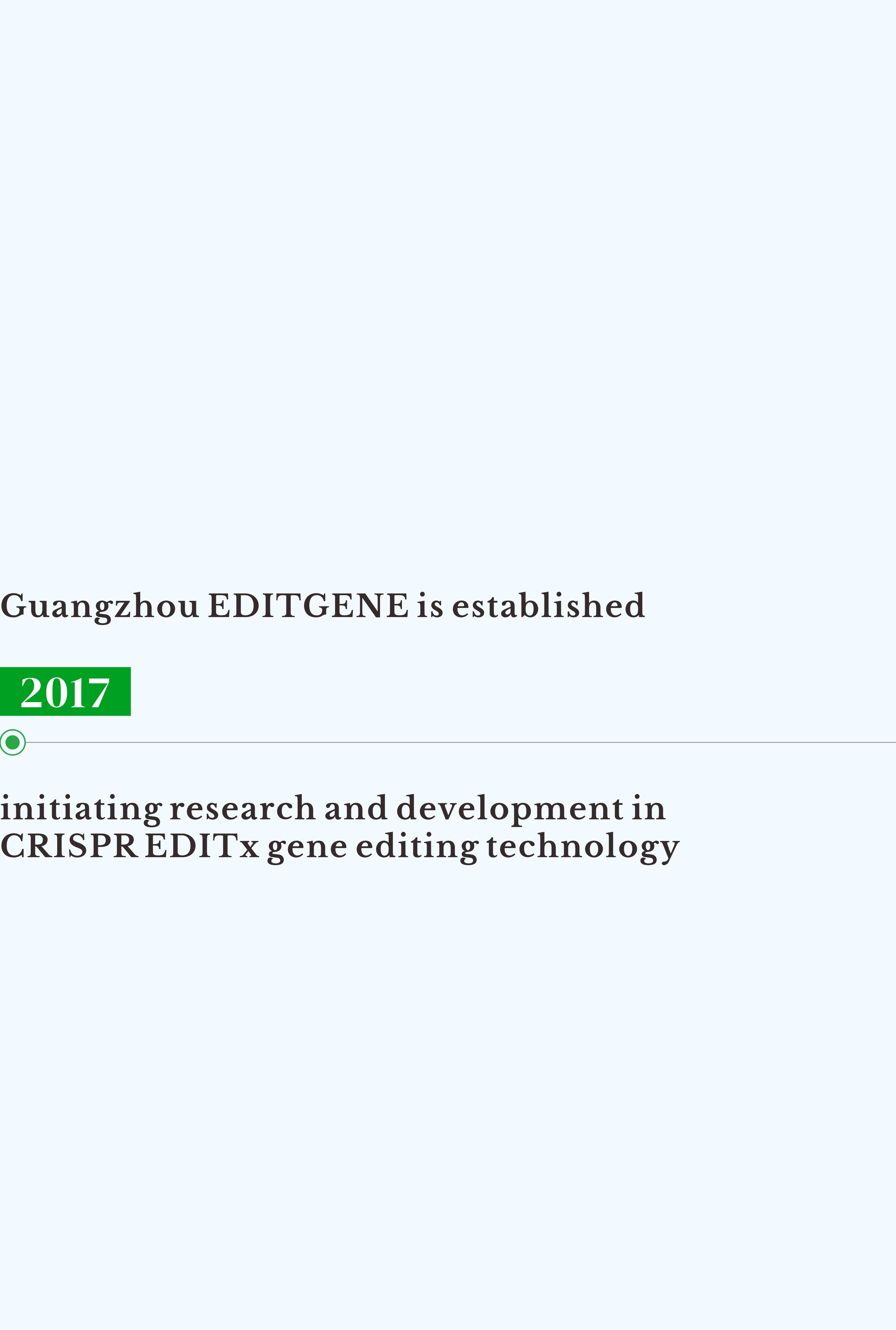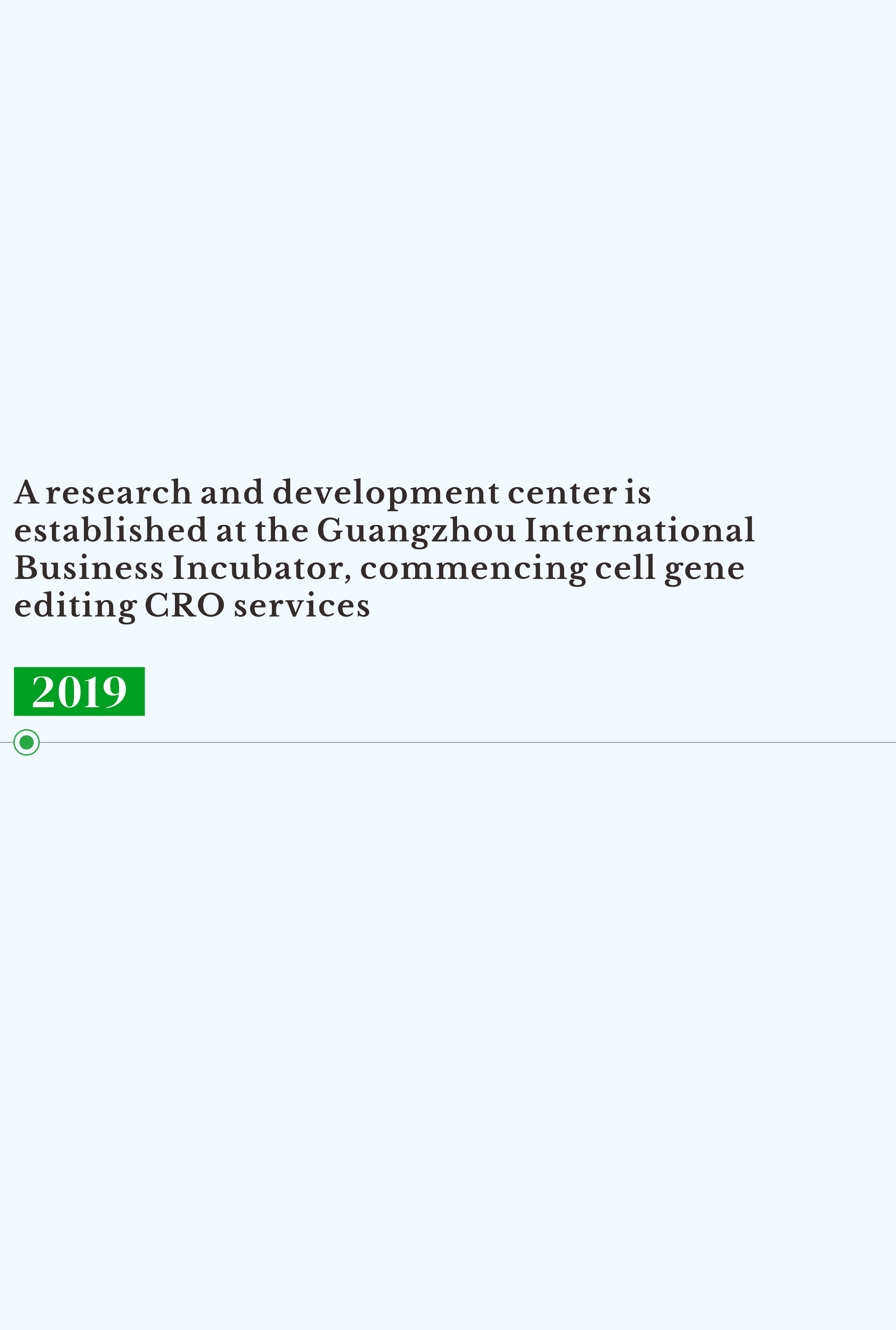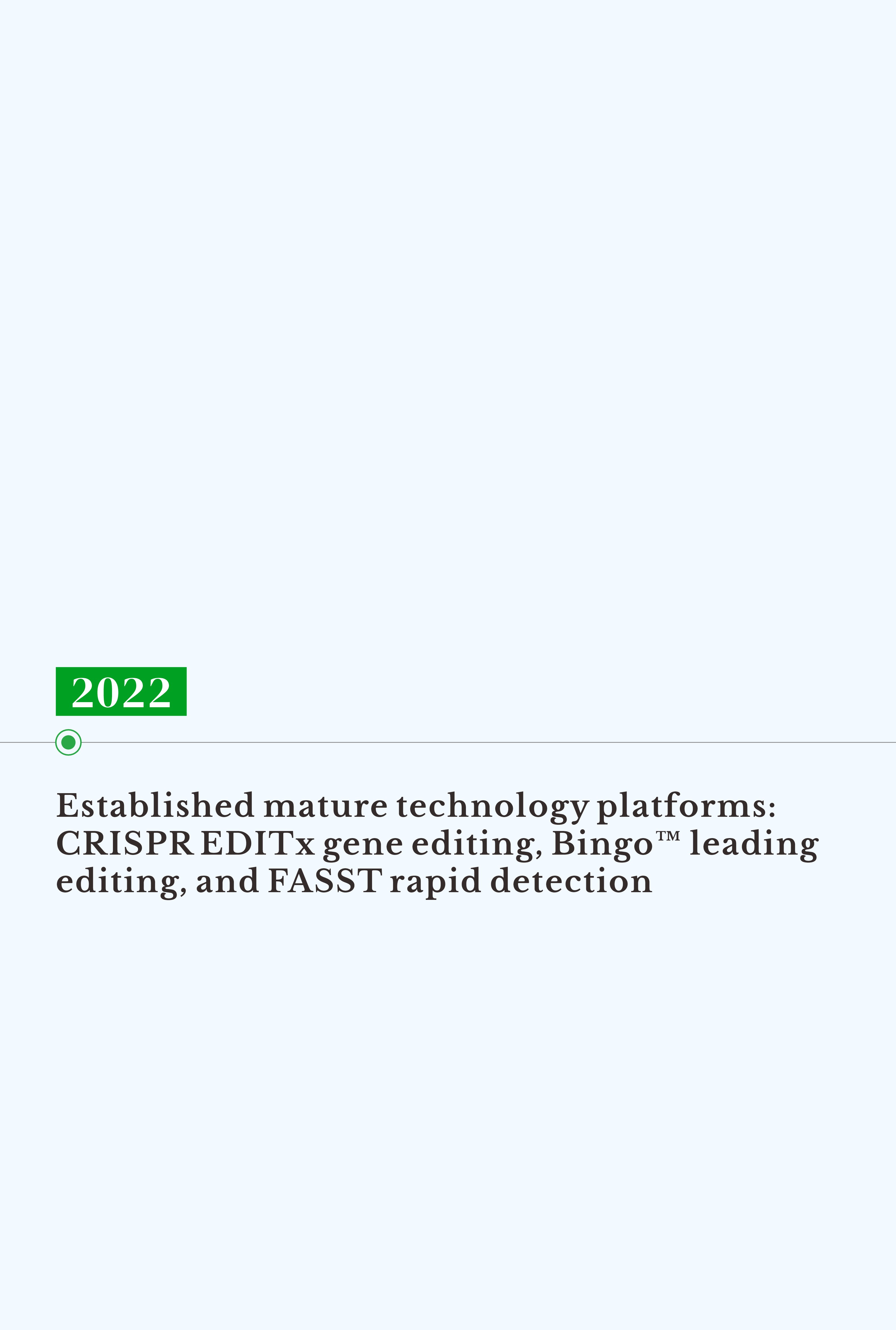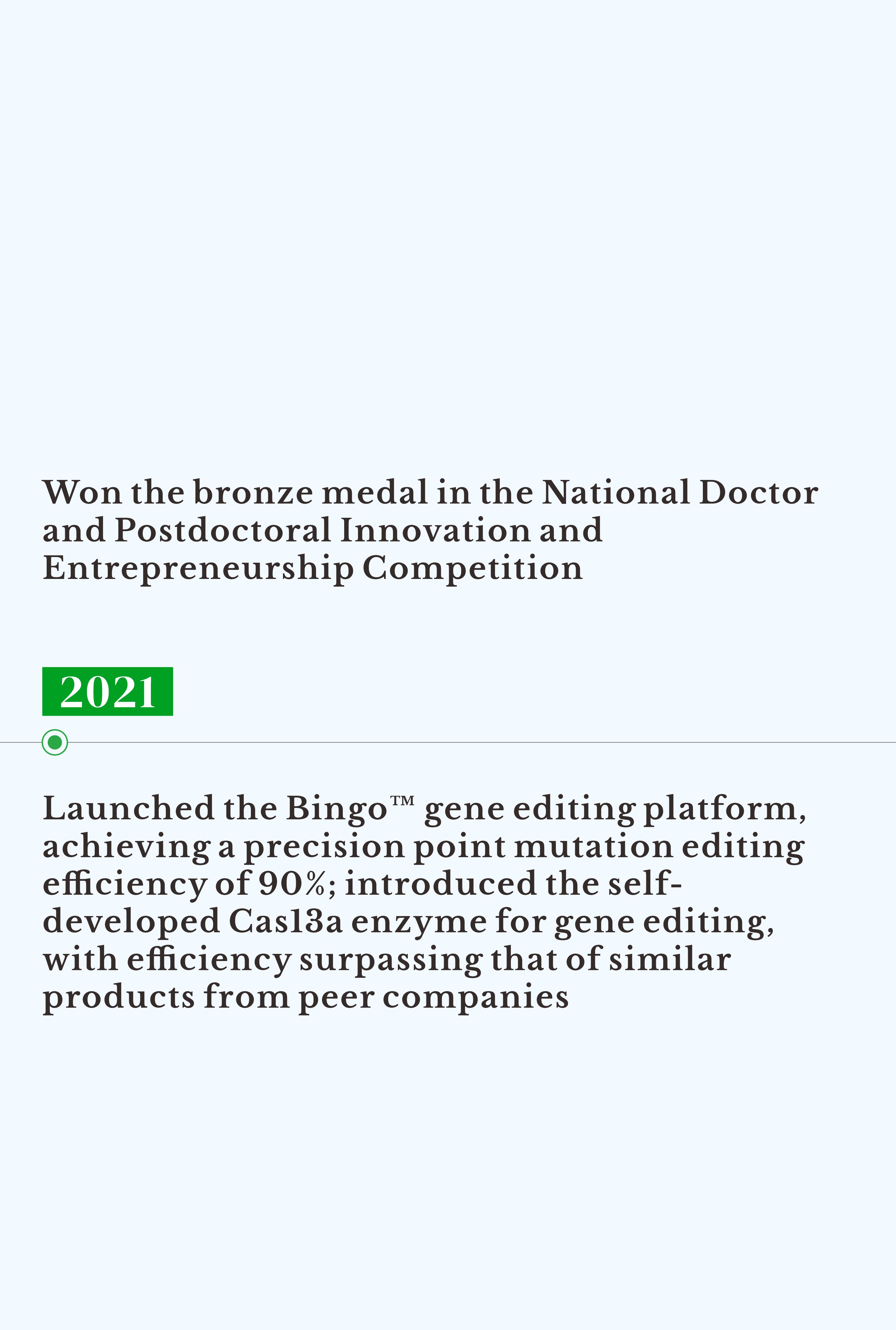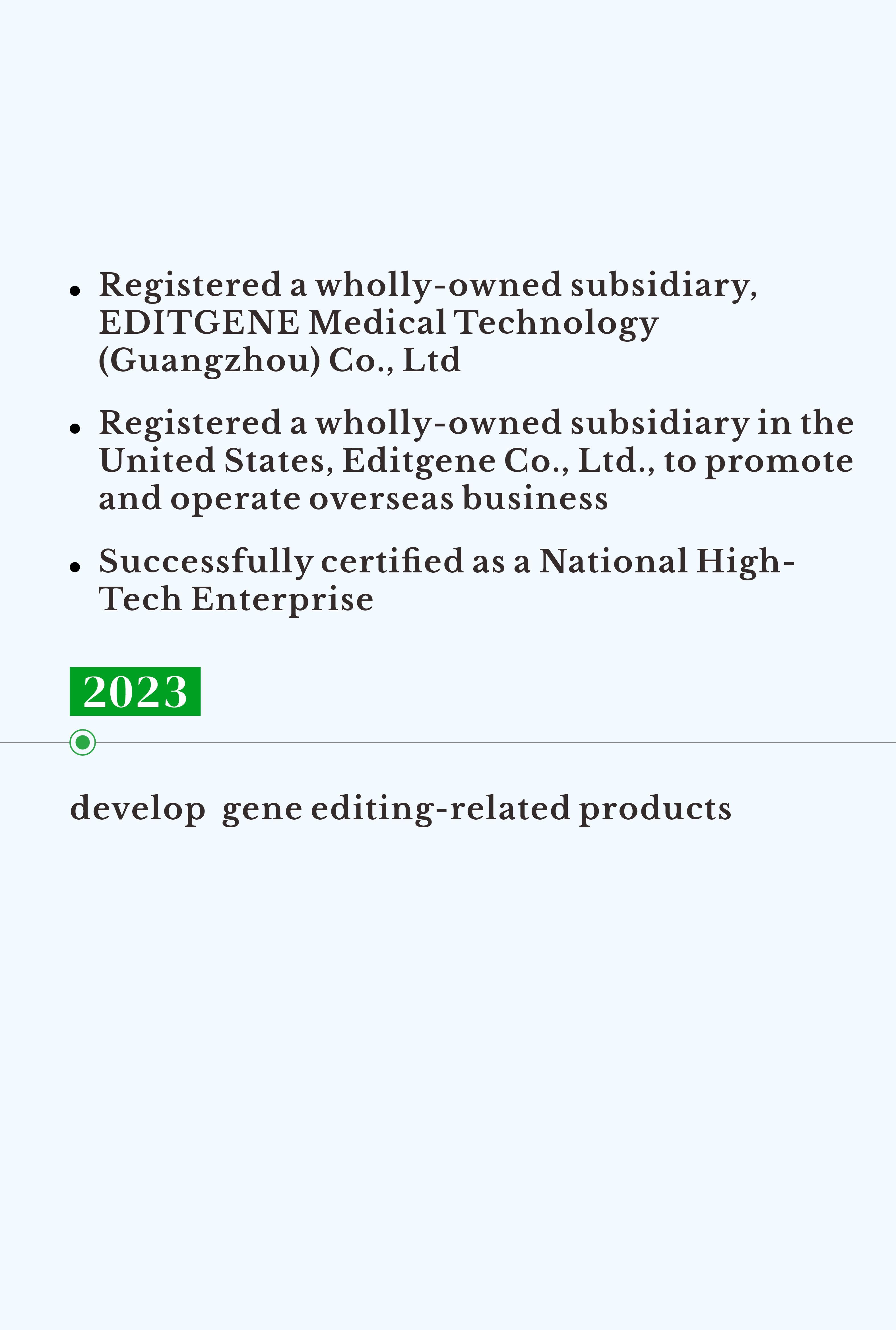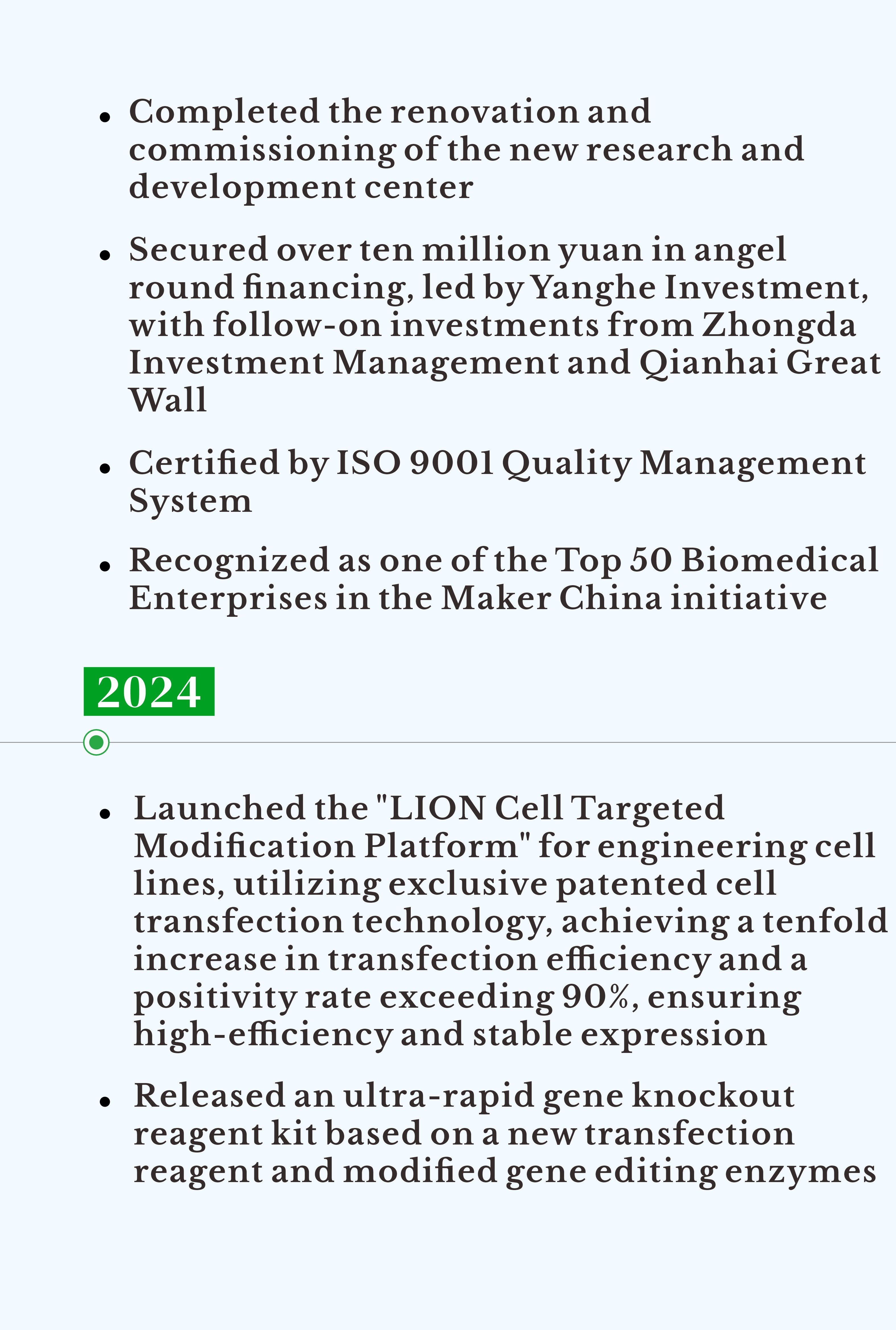A Look into EDITGENE 
Background
Established in August 2017, EDITGENE is a leading genomic technology company based in Guangzhou, China. Founded and guided by a team of distinguished professors, EDITGENE integrates diverse expertise and advanced scientific methodologies gained through global research experiences. The company is at the forefront of developing CRISPR/Cas-based genomic editing technologies, with a commitment to delivering innovative solutions that advance human health and improve lives. EDITGENE's capabilities span research, development, production, and services, enabling impactful contributions to the scientific and healthcare communities.
Vision
Driven by its core philosophy of "innovation and sharing of scientific knowledge," EDITGENE focuses on advancing science in the domains of life, health, sustainability, and development. Building on CRISPR/Cas technologies, the company has pioneered platforms such as CRISPR-EDITx™, Bingo™, FASST, and LION™ setting new benchmarks in prime editing. EDITGENE is dedicated to expanding the accessibility and applicability of CRISPR/Cas technologies to promote breakthroughs in human health and genomic research. By providing comprehensive CRO services to global research laboratories and pharmaceutical companies, EDITGENE contributes to accelerating genomic advancements worldwide.
Molecular Diagnosis
Beyond CRISPR/Cas development, EDITGENE has achieved significant breakthroughs in molecular diagnostics. The company has optimized protein purification methods to produce functional and stable Cas12 and Cas13 enzymes using advanced crRNA-guided techniques. This innovation has enabled the development of FASST™ detection technologies, which enhance CRISPR's detectability, sensitivity, and cleavage efficiency. These advancements have expanded the capabilities of molecular diagnostics, paving the way for more precise and reliable detection methods.
From Research to Practice
EDITGENE bridges the gap between research and practical applications by refining CRISPR technologies for real-world use. The company contributes to disease prevention, diagnosis, and treatment by collaborating with pharmaceutical companies to develop effective therapeutic solutions. With a commitment to excellence in scientific innovation, production, and service delivery, EDITGENE aims to lead the biotechnology industry. Its mission is to advance human health through transformative science, creating a continuous cycle of development that meets the highest standards of quality and impact for the scientific community and society.


Vision and Mission
To accelerate gene editing for the advancement of human health.

Core Values: Innovation and Sharing
We are committed to innovation to meet customer needs, enabling our dedicated team, clients, and partners from all over the world to share in our growth.
Development History & Milestones




Development History & Milestones
EDITGENE's Technology Platform










